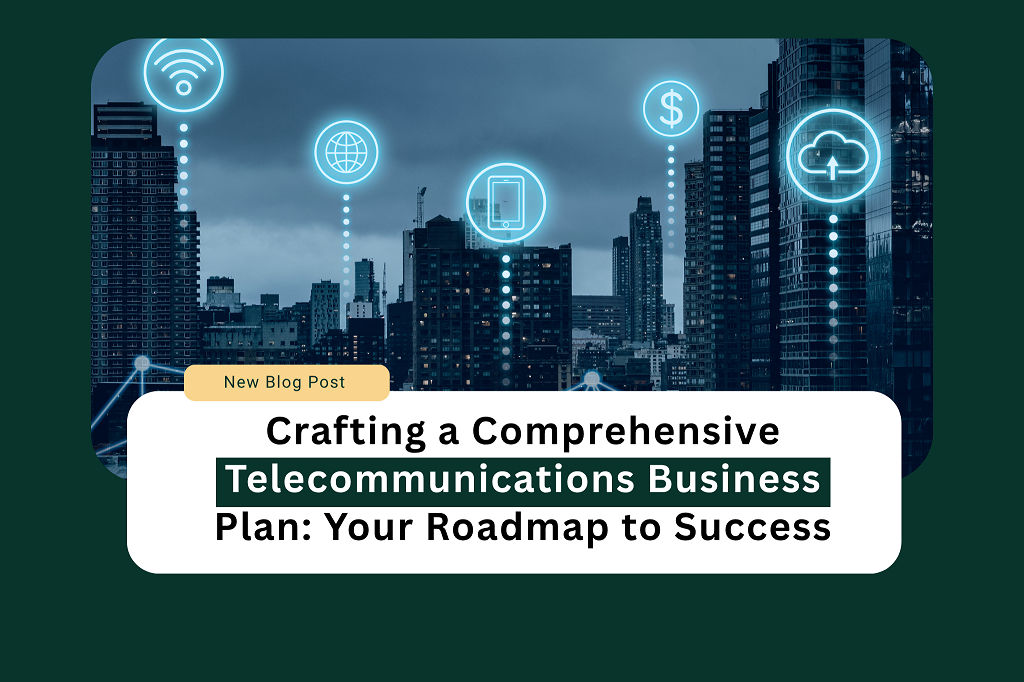In today’s quickly evolving digital world, launching a digital marketing agency is an exciting entrepreneurial experience. Your digital marketing agency needs a well-constructed business plan to turn ideas into sustainable and profitable operations. The digital marketing sector has recorded extraordinary growth because businesses now understand that well-planned online strategies and targeted marketing approaches deliver essential results.
Understanding the Digital Marketing Ecosystem
The digital marketing industry functions as an essential business strategy pillar because worldwide expenditures are expected to rise to $786 billion by 2026. Businesses that want to succeed in this evolving field need to understand how markets work alongside technological developments alongside their customers’ expectations. The key to digital marketing agency success lies in their ability to create innovative approaches combined with deep technology expertise and quantitative client outcomes across multiple business sectors.
Financial Foundations and Investment Requirements
Setting up a digital marketing agency demands thoughtful financial preparation together with strategic resource distribution. The amount required to launch a digital marketing agency starts at $10,000 and extends up to $50,000 based on service scope. The initial financial commitment includes necessary components that encompass both professional equipments along with software subscriptions and initial marketing strategies and operational costs. A digital marketing agency operates at a lower cost level than traditional businesses while offering flexible service expansion potential.
Revenue Streams and Pricing Strategies In Digital Marketing
Digital marketing agencies can generate revenue through multiple channels, including:
- Monthly retainer packages
- Project-based pricing
- Performance-based compensation
- Specialized service offerings
- Consulting and strategic planning
Digital marketing agencies should base their pricing on their expertise levels along with their market standing and the distinct advantages they deliver to their clients. Starting digital marketing agencies typically charge competitive fees to attract new clients, yet established agencies charge premium prices because of their demonstrated experience combined with specialized skill sets.
Operational Excellence and Service Differentiation
Success in the long term depends heavily on creating a robust service framework. Comprehensive digital marketing services often encompass:
- Search engine optimization (SEO)
- Social media marketing
- Content creation and strategy
- Pay-per-click advertising
- Email marketing campaigns
- Web design and development
- Analytics and performance reporting
Agencies that succeed in the digital market constantly learn and adapt their technologies to stay ahead of current digital marketing advances. A successful digital marketing agency needs ongoing professional development alongside modern tool investment and a dedicated focus on achieving quantifiable customer outcomes.
Technological Infrastructure and Digital Tools In Digital Marketing
Digital marketing agencies implement complex technological systems that convert creative objectives into measurable marketing performance indicators. Modern marketing operations depend fundamentally on essential tools consisting of CRM systems, social media management platforms, and analytics software.
These technologies help agencies deliver better client interactions and performance measurement while deploying precise multi-channel campaigns.
The analytics platforms Salesforce, HubSpot, and Google Analytics deliver complete information about user conduct and marketing return on investment alongside campaign success metrics. A monthly technological infrastructure investment amounts to $500-$5,000 based on agency size and service complexity. These strategic tools serve agencies as investments that create their competitive edge in the digital marketplace.
Market Positioning and Competitive Strategy
To stand apart in the digital marketing industry, your agency must develop a strong, distinctive value proposition. Agencies that succeed in competitive markets usually focus on particular business sectors or create distinct analytical approaches that help them surpass generalists in the market. This might involve:
- Niche market specialization
- Proprietary marketing methodologies
- Advanced technological capabilities
- Exceptional client communication and reporting
Client Acquisition Strategies
Digital marketing client acquisition demands a combination of strategic positioning expert demonstration and relationship development to succeed. Agencies need to build compelling digital images by publishing high-quality content while demonstrating expertise through leadership approaches and presenting successful client achievements. Industry conferences, along with LinkedIn connections and strategic partnerships, emerge as the main channels for lead generation because networking assumes a vital role.
Referral networks build trust between companionships and initial clients, leading to better acquisition results. Success depends on effective problem identification for clients and specialized solution development while continuing to prove worth to clients.
Financial Projections
Digital marketing agencies need to navigate through unpredictable revenue trends when they create financial plans. The initial annual financial expectations for new agencies fall between $50,000 and $150,000 but show substantial potential for expansion. The profit margin progression for digital marketing agencies starts at 10-15% during the initial stages before reaching 25-40% when organizations adopt optimized operational frameworks. The agency generates revenue through three main streams which include retainers combined with project fees and targeted service packages.
Risk Management Approach
Digital marketing agencies implement a complete risk mitigation approach to handle technological challenges together with operational and legal risks. Digital agencies need to detect upcoming technological threats in advance so they can reduce potential risks created by platform algorithm updates. Companies need to focus on data privacy regulation compliance together with intellectual property protection. To minimize financial risks businesses should sustain cash flow reserves along with diverse client portfolios and adaptable business models.
Personal Development and Continuous Learning
Digital marketing success requires constant learning as a survival mechanism in an ever-evolving industry. To achieve professional development agency owners must invest strategically in obtaining certifications from Google Analytics, HubSpot and Facebook Blueprint platforms. Industry conferences, together with advanced training programs, deliver vital information about emerging technologies, data analytics, and innovative marketing approaches.
The pathway to technological skill enhancement requires a deep understanding of digital literacy through knowledge of changing algorithms and social media platforms combined with marketing technology mastery. Professionals who succeed develop smart approaches that welcome unknown factors while prioritizing progress and handling disruptions from technology. By maintaining this dedication agency owners progress from delivering services to emerging as market-moving innovators who navigate today’s evolving marketplace.
Conclusion
A complete digital marketing agency business plan demands intense dedication together with strategic thinking and a strong commitment to excellence. Entrepreneurs who prepare well encounter business obstacles yet hold meaningful prospects to launch both profitable and effective ventures.
Our team is dedicated to helping future digital marketing professionals achieve their goals. Our extensive guide delivered essential information for building effective agency business plans. Your feedback about your experiences together with your entrepreneurial ambitions and business challenges is valuable to us. Please share your insights through the comments while you support this message by sharing it across your social media networks.
FAQs
How Much Does It Cost to Start a Digital Marketing Agency?
Starting-up costs for digital marketing agencies normally amount to between $10,000 and $50,000 to obtain essential technology and marketing tools and operational funding. Investment requirements depend on the comprehensive scope of offered services along with the required technological framework.
Can a single individual launch and operate their own Digital Marketing Agency?
Solo entrepreneurs who use specialized skills with strategic networking along with efficient technological tools can successfully establish and manage their digital marketing agency.
What Kind of Profits Do Digital Marketing Agencies Generate?
Profit margins span between 15% and 40% based on the complexity of services offered and the combination of client base and operational excellence. Agencies that specialize in unique value propositions typically generate greater profitability levels.
What Services Should a Digital Marketing Agency Offer?
A digital marketing agency should provide SEO services with social media marketing and content creation alongside pay-per-click advertising and email marketing and full web design analytics and reporting solutions.
What Strategies Should I Use to Get My First Clients?
To establish credibility, customers should leverage personal connections while developing compelling content along with building an online portfolio, participating in industry events using LinkedIn, and providing introductory discounted or pro-bono services.








